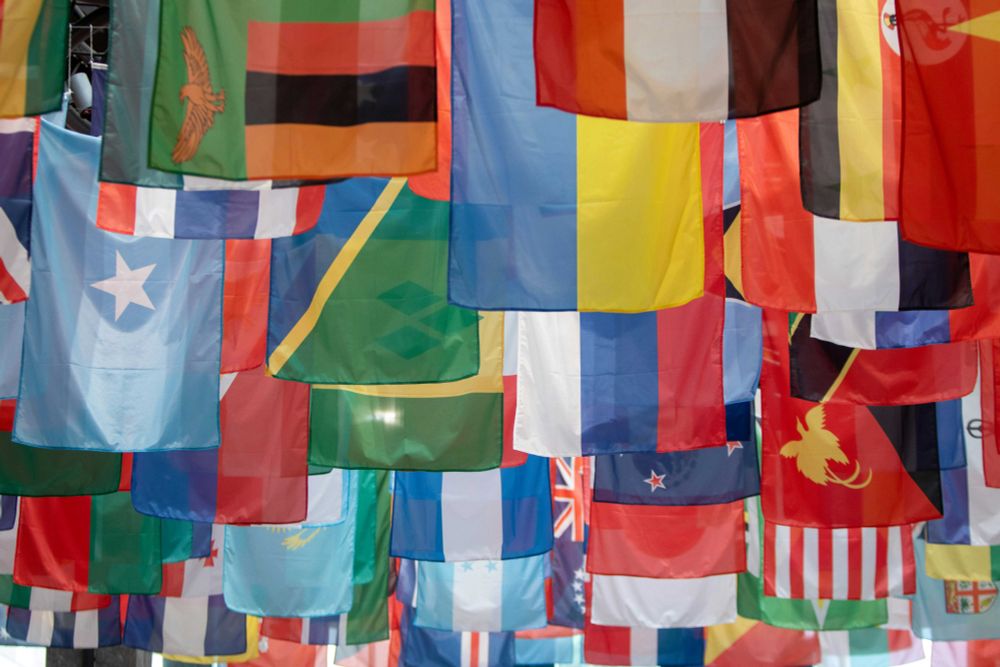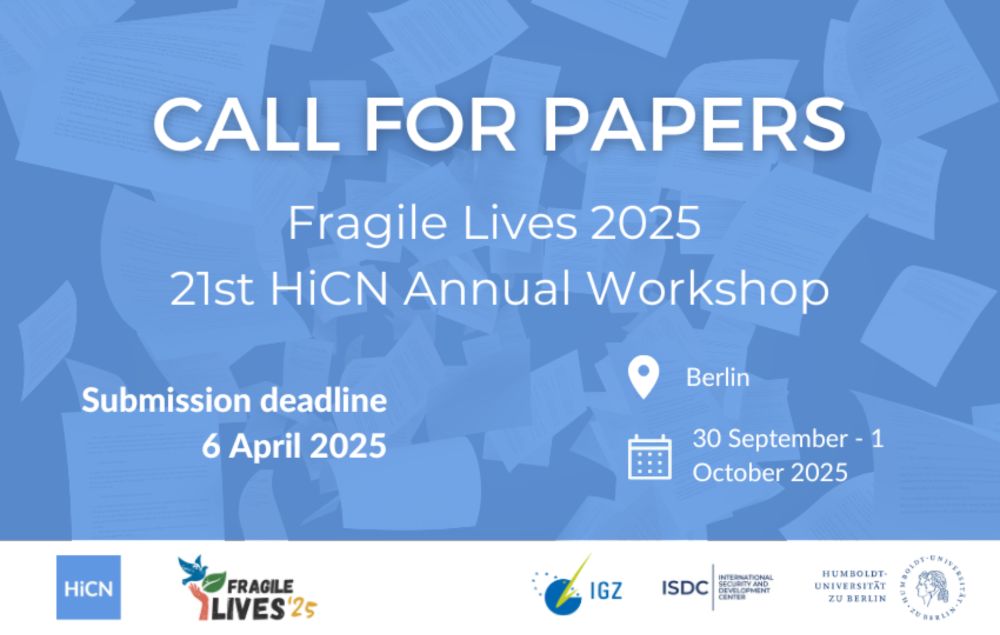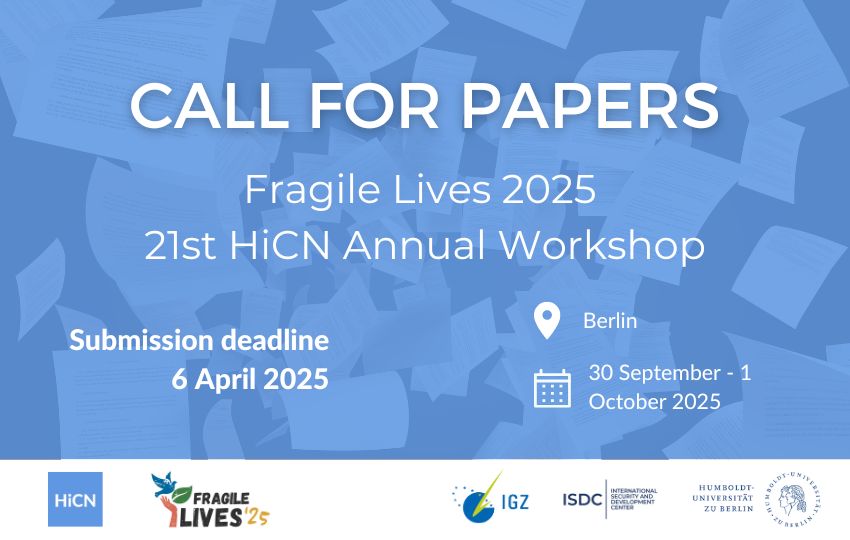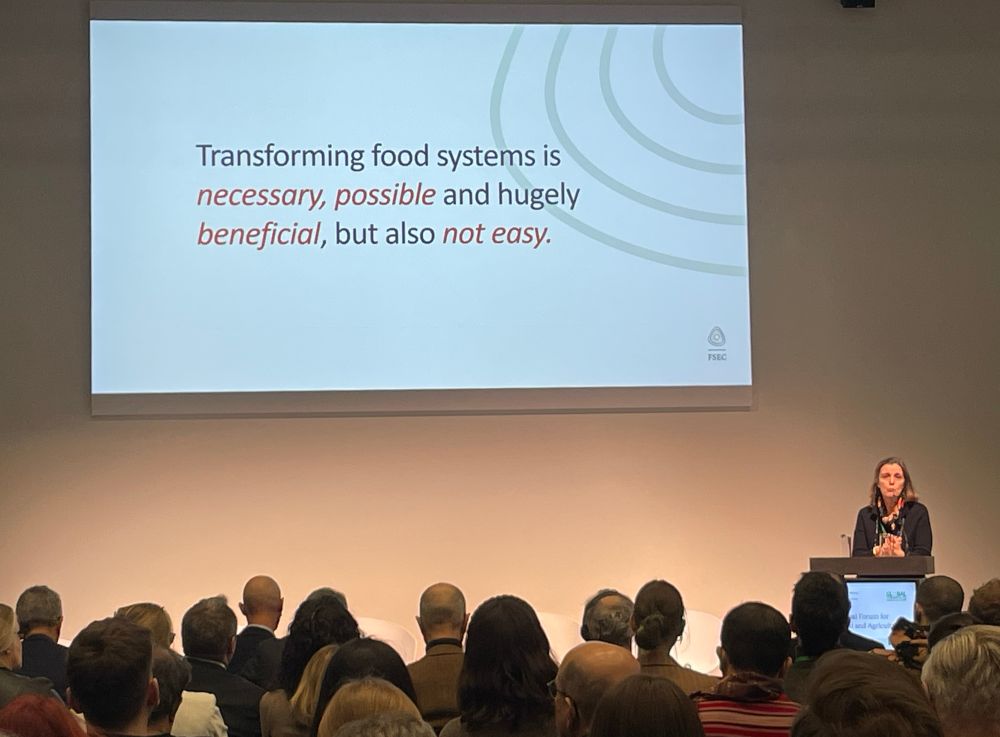@isdcberlin.bsky.social
8/8
@isdcberlin.bsky.social
8/8
What did we learn❓
Our analysis offers nuanced insights into the mechanisms linking individual pandemic exposure to food insecurity and provides valuable implications for designing targeted policy interventions to protect vulnerable households in low- and middle-income countries.
7/n
We introduce a novel micro-level measure of “COVID-19 exposure” and employ a heteroskedasticity-based IV method to mitigate potential endogeneity concerns.
6/n
Our approach: To overcome these gaps, we examine the impact of COVID-19 exposure on food security in four African countries – #Uganda, #Tanzania, #SierraLeone, and #Mozambique – using large-scale phone survey data collected throughout 2021.
5/n
How did we advance the literature? Most studies on this topic rely on aggregate-level exposure measures, overlooking individual-level heterogeneity and introducing measurement errors that limit causal inference.
4/n
2️⃣ Our analysis identifies significant declines in household income in COVID-19 exposed areas as primary drivers of worsened food insecurity.
3️⃣ Vulnerable households often lacked financial support from governments, leading them to adopt harmful coping strategies.
3/n
We have three specific findings:
1️⃣ We find particularly pronounced impacts among households characterized by large family sizes, limited access to public services, fewer assets, and with female, younger, and less educated household heads.
2/n

📣 Out now #openaccess in Food Security: Half of all households in 4 African countries faced moderate-to-severe food insecurity early in the #COVID-19 #pandemic!
doi.org/10.1007/s125...
#foodsecurity #Africa
1/n
It is an honour and a pleasure to serve on the Steering Committee of the FLPE. Such commitment, energy and intellectual spark in the room!
17.01.2026 14:04 — 👍 2 🔁 1 💬 0 📌 0Ukraine is also fighting for our freedom. Fighting is costly. But not fighting is far costlier. Europe must fund and equip Ukraine‘s defence against tyranny, with or without the support of the USA. Peace and security are too valuable to be decided by countries not sharing our values.
22.11.2025 15:03 — 👍 0 🔁 0 💬 0 📌 0
We will work closely with #FAO, #IFAD, #WFP, #CGIAR and other bodies to achieve #SDG2, #zerohunger for all. I am thrilled to work with such amazing colleagues!
3/3
As a group of 15 scientists from around the world, we will guide the Panel’s work in providing independent, evidence-based advice to the CFS on #foodsecurity and nutrition-related issues.
2/3

I am delighted to have been appointed to serve on the Steering Committee of the High Level Panel of Experts on Food Security and Nutrition (HLPE-FSN) of the United Nations Committee on World Food Security (CFS) for the 2025–2027 term.
www.fao.org/cfs/cfs-hlpe...
1/3
Congratulations to María Corina Machado for winning the #NobelPeacePrize. A true hero!
Fighting for freedom, democracy, civil rights and legitimate institutions is a fight for peace.
The call for the 2026 Jan Tinbergen European Peace Science Conference is now open and we're hosting it in Berlin! Please submit your abstracts by December 31st www.europeanpeacescientists.org/jan-tinberge...
09.10.2025 15:39 — 👍 1 🔁 1 💬 0 📌 0
I am very excited that Fragile Lives 2025 is about to start at @humboldtuni.bsky.social!
The programme is at zerohunger.de/fragile-live...
Call for papers
The Journal of Development Effectiveness is seeking rigorous, innovative research on peacebuilding interventions
Guest eds.: Paul Thissen, @tilmanbrueck.bsky.social , Neil Ferguson
Deadline: 31 October 2025 #EconSky #PoliSky
think.taylorandfrancis.com/special_issu...
Maybe that part of North America should declare independence from the overbearing ruler? It worked once before.
22.05.2025 20:07 — 👍 2 🔁 0 💬 1 📌 0
Looking forward to the great speakers on #Syria and #VAWG! Join us!
@thesvri.bsky.social

Please see the CfP & submission details at hicn.org/call-for-papers-fragile-lives-2025-hicn-workshop.
6/6

Our keynote speakers will be Patricia Justino @apvjustino.bsky.social, Deputy Director of the United Nations World Institute for Development Economics Research (UNU-WIDER) in Helsinki, Finland, and Amber Peterman, University of North Carolina at Chapel Hill.
5/6

We especially welcome micro-level, quantitative papers that incorporate a gender lens, notably within poly-crisis contexts.
The deadline for the submission of papers or entire sessions is 6 April 2025.
4/6

We invite submissions that analyse causes, dynamics and consequences of crises globally, emphasising papers covering livelihoods, displacement, poverty, inequality, peacebuilding, and policy impacts.
3/6

The focus of this year’s Fragile Lives is ‘Gender, Institutions, and Fragility’, discussing how gender and institutions shape fragility, insecurity, and emergency.
2/6

📣The Call for Papers and Sessions of the 2nd international expert conference Fragile Lives on 30 September and 1 October 2025 at Humboldt-University of Berlin in Germany is about to close. 1/6
#callforpapers #Berlin #HiCN #FragileLives @isdcberlin.bsky.social

Call for Papers: Fragile Lives 2025 HiCN Workshop
📆30 September – 1 October 2025
Fragile Lives 2025 & the 21st HiCN Annual Workshop will review the role of gender & institutions in the formation, functioning & impacts of fragility, insecurity, conflict & emergency.
RIP NATO
28.02.2025 23:11 — 👍 0 🔁 0 💬 0 📌 0 22.02.2025 22:08 —
👍 1
🔁 0
💬 0
📌 0
22.02.2025 22:08 —
👍 1
🔁 0
💬 0
📌 0

Remembering the liberation of Auschwitz 80 years ago. Never again - I hope.
27.01.2025 17:09 — 👍 1 🔁 0 💬 0 📌 0
„Transforming food systems is necessary, possible and hugely beneficial, but also not easy“ argues Caterina Ruggeri Laderchi from the FSEC at the #GFFA25 in Berlin just now.
It is so encouraging that this can be done - however gloomy current trends are.
#foodsystems #diet #agriculture #food